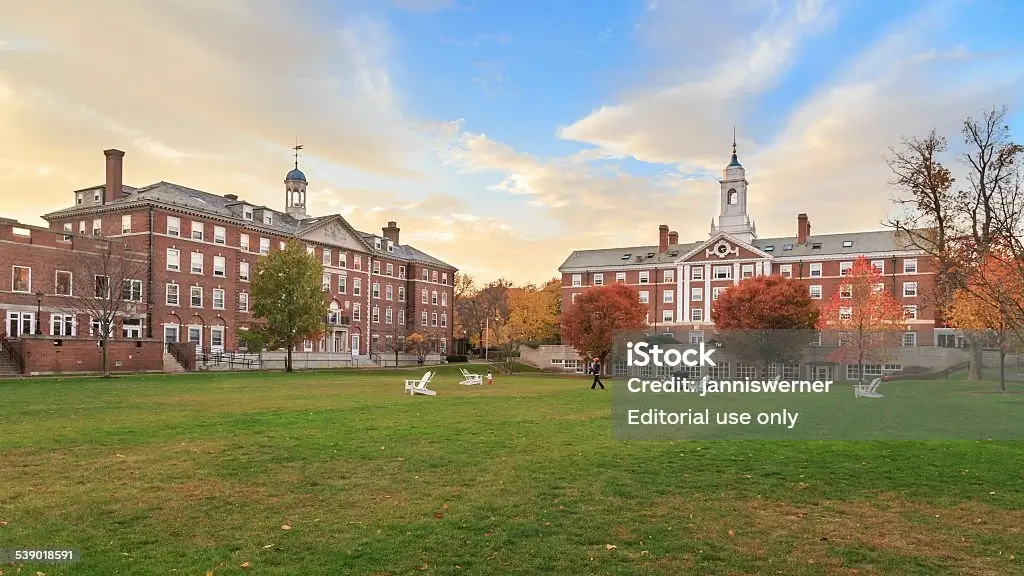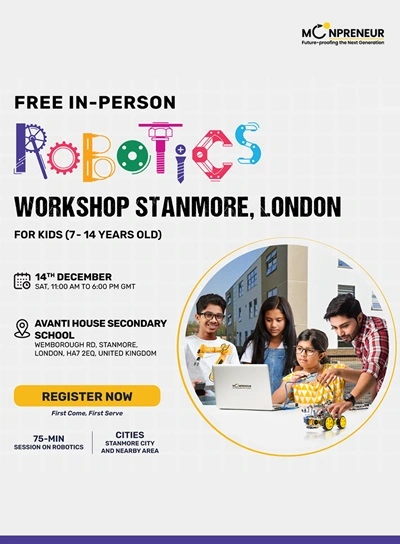
Moonpreneur

Update: This article was last updated on 18th October 2023 to reflect the accuracy and up-to-date information on the page.
Table of Contents
Introduction
The Ivy League colleges are known for their academic rigor, prestigious reputation, and exceptional students. Unlike other colleges, they don’t just focus on the best scores.
They need more of you. They want to know how interesting you are. What drives you every day to show up? And can they help you in your quest to become the next world leader?
In short, they are looking for applicants with a hunger to make the world a better place using their unique sets of skills, like leadership, creativity, and design thinking.
When writing a resume for an Ivy League College Admission, you must internalize that for every seat, there are 10-12 impressive candidates vying for admission. Your application should demonstrate your unique “voice” to get that “Congratulations, you’ve been accepted” letter in your mailbox.
So how can you stand out in thousands of “deserving” applications?
While there is no surefire formula to guarantee admission, there are some simple but effective ways to make your resume more attractive to admissions officers.
Example of an ideal resume for Ivy League college admission:
[Your Name]
[Your Address]
[Your Email Address]
[Your Phone Number]
[LinkedIn Profile (if applicable)]
Objective:
Dedicated and motivated high school student with a strong academic record, a passion for community involvement, and a commitment to personal growth. Seeking admission to an Ivy League college to pursue a rigorous education and make a positive impact on the world.
Academic Achievements:
- High School: [Your High School Name], [City, State]
- Graduation Year: [Year]
- GPA: [Your GPA]
- Class Rank: [Your Class Rank]
- SAT/ACT Scores: [Your Scores]
- Honors and Awards: [List any academic honors or awards]
- Relevant Coursework: [Highlight advanced or relevant courses]
Extracurricular Activities:
- President, [High School Club or Organization]
Description of leadership responsibilities and achievements - Member, [Relevant Extracurricular Activity]
Description of your involvement and impact - Volunteer, [Community Service Organization]
Description of your volunteer work and contributions - [Any other extracurricular involvement]
Leadership Experience:
- [Leadership Position], [Club or Organization Name]
Description of your leadership role and its impact - [Leadership Position], [Another Club or Organization]
Description of your leadership role and its significance
Internships and Work Experience:
- [Internship or Job Title], [Company/Organization Name]
Description of your responsibilities and accomplishments - [Internship or Job Title], [Another Company/Organization]
Description of your responsibilities and achievements
Research Experience:
- [Research Project], [Research Institution/University]
Description of your role and findings - [Another Research Project], [Institution/University]
Description of your role and contributions
Skills:
- Technical Skills: [List any relevant technical skills]
- Language Skills: [List any foreign languages and proficiency levels]
- Other Skills: [Any additional skills or certifications]
Community Involvement:
- [Community Service Project], [Organization/Location]
Description of your contributions and impact - [Another Community Service Project], [Organization/Location]
Description of your contributions and significance
Hobbies and Interests:
- [Hobby/Interest], [Brief description]
- [Another Hobby/Interest], [Brief description]
Awards and Honors:
- [List any awards or honors received]
References:
Available upon request.
5 Tips to Make Your Resume Stand Out In IVY League College Admission
1. Focus on your achievements, not just your activities
Admissions officers are not just interested in your activities; they want to see what you accomplished during those activities. From an evaluator’s perspective, extracurricular activities can be classified into four tiers.- Tier 1 comprises rare or exceptional activities, such as being a nationally ranked athlete.
- Tier 2 consists of activities highlighting significant accomplishments like being elected student body president.
- Tier 3 includes smaller achievements, such as serving as an editor of the school paper.
- Lastly, Tier 4 encompasses general participation in student clubs and other leisurely pursuits.
Let’s see an example of the first tip:
Right Example✔️
During my high school years, I organized and led a charity fundraising event that raised over $10,000 for a local homeless shelter. This gave me a sense of being a responsible citizen and confidence on my ability to make a positive impact on my community.
Wrong Example ❌
During my high school years, I was a member of the student council, played on the basketball team, and participated in various clubs.
2. Quantify your accomplishments
Quantifying accomplishments can be a powerful way to make achievements stand out on college applications. Including specific numbers, percentages, or other metrics can provide concrete evidence of the impact and accomplishments of activities pursued. For example, instead of just writing “volunteered at a Blind Association for Kids,” you could write “volunteered at a Blind Association for Kids for 100 hours, reading aloud to over 500 visually impaired children.” Quantifying accomplishments provides admissions evaluators with more information about your achievements and shows that the student is detail-oriented, goal-driven, and results-oriented. However, it’s important to note that not all accomplishments can be easily quantified, and that’s okay. In those cases, it’s still important to describe the activity and its impact as specifically as possible.Let’s see an example of the second tip:
Right Example✔️
I served as the captain of the debate team, leading us to victory in multiple regional competitions and achieving a 35% increase in the number of team members over the course of a year. My contribution in the organization of a series of workshops improved our debate skills, resulting in an 80% win rate.
Wrong Example ❌
I was involved in various extracurricular activities, such as the debate team, student council, and drama club.
3. Use strong action verbs
Using strong action verbs can make the application more dynamic by demonstrating your ability to take charge and make things happen. Instead of saying you “participated” in a club or organization, use more dynamic verbs like “led,” “initiated,” or “organized.”
However, it’s important to use these verbs appropriately with a goal of creating a compelling narrative of your achievements and impact without coming across as boastful or insincere.
For example, instead of writing “participated in a community service project,” you could write “led a team of volunteers in a community service project, which helped raise 500 pounds donated to a local food bank.”
Using the action verb “led” and the specific details about the funds raised will likely grab the reader’s attention.
Let’s see an example of the third tip:
Right Example✔️
I spearheaded a school-wide recycling initiative, which reduced waste production by 50% and earned our school recognition for sustainability efforts at the state level.
Wrong Example ❌
I was involved in various environmental projects at my school, including recycling and organizing awareness campaigns.
4. Follow One-Page Rule
Admissions officers must review thousands of applications, so it’s important to make your resume concise. Most Ivy coaches and consultants will ask you to stick to the “One Page Rule.”
“Contrary to the popular belief of adding everything in the application under the sun, the ‘less is more’ approach works like a charmer,” suggests Caroline Koppleman. Caroline, founder and CEO of The Koppelman Group (TKG), adds, “focusing on what’s truly the most important. A resume is a distilled picture of who you are. It isn’t meant to be deep or comprehensive, and the one-page limit is an important filter. “
- Use bullet points to break up long paragraphs, and include only relevant information.
- Avoid using small fonts or too many colors, as these can make your resume look cluttered and difficult to read.
In conclusion, making your resume stand out in Ivy League college admission requires a combination of strategy and attention to detail.
“The font must be legible without zooming in with 0.5 inches margins, and it must be one page”, Caroline further adds.
Let’s see an example of the fourth tip:
Right Example✔️
I carefully crafted my application essay to convey my passion for environmental science and its connection to my personal experiences. It’s just one strong page that tells my story and dreams.
Wrong Example ❌
My college admission essay is a sprawling three-page narrative that delves into every aspect of my life, hobbies, and dreams.
Moonpreneur
5. Tailor your resume to each college
While it’s essential to have a general resume highlighting your achievements and activities, it’s also a good idea to tailor your resume to each college to which you’re applying.
Research each college’s mission, values, and programs, and customize your resume to highlight the aspects of your background and experiences that align with those of the college.
Conclusion
Drafting a resume for IVY League College is not an activity you can indulge in the night before the application. It has to be worked out systematically. You must be genuinely deserving, and every word should demonstrate your capabilities. With the right approach and guidance, writing a winning resume for IVY League College Admissions is simpler than you think.
So, if you’re aiming for an IVY League education, remember that your resume is your chance to showcase your unique talents and achievements.
Take the time to craft a compelling story that highlights your strengths and experiences. And don’t forget that seeking feedback from others can make a big difference in the quality of your application.
Keep striving and believe in yourself – the future is yours to shape!
Good Luck 🙂
Moonpreneur is on a mission to disrupt traditional education and future-proof the next generation with holistic learning solutions. Its Innovator Program is building tomorrow’s workforce by training students in AI/ML, Robotics, Coding, IoT, and Apps, enabling entrepreneurship through experiential learning.

















I am struggling to strike a balance between highlighting these accomplishments and making sure the CV is clear and concise, help me with it.
One of the most important things you can do to make your CV stand out from the crowd when it comes to Ivy League admission is to use moderation. Put accomplishments before involvement. Measure your achievements. Use powerful action verbs. Keep your CV on one page. Tailor it for each school. Stick to bullet points. Use a consistent font. And don’t forget to proofread.
Quantifying achievements is great, but in competitive schools, standing out can be tough. What do admissions officers value beyond numbers?
Competitive schools prioritize qualities such as character, drive, leadership, diversity of perspective, tenacity, community involvement, interpersonal abilities, creativity, and alignment with school values, as well as personal essays, in addition to quantifiable achievements. It is important to consider one’s identity, contributions, and integration into the institution’s ethos.
What types of multimedia are highly valued by Ivy League universities and how can students incorporate multimedia elements into their applications without impressing admissions officers or detracting from the traditional resume format?
Using multimedia in your Ivy League college application might be a good idea if you do it right. Ivy League universities love audio samples and graphic presentations. They also love internet portfolios and video presentations. When using multimedia in your application, you want to make sure it’s professional, concise, focused, and balanced with conventional elements. You also want to make sure that it’s relevant so that you don’t come across as overly personal. Make sure that your multimedia is easy to access, use it as an extracurricular activity, use it consistently, and follow the rules. When used correctly, multimedia can help your application by giving a fuller picture of your achievements and skills.
It’s easy to think that just following a few guidelines will get you into the Ivy League, but that’s not the case. The Ivy League’s admissions process is complicated and highly selective, and it’s important to remember that, while the advice on this blog might be helpful, the application process is way more complicated than that.
What are the core components of the admissions process for Ivy League schools?
Below are the core components of the admissions process at each of the eight Ivy League institutions: